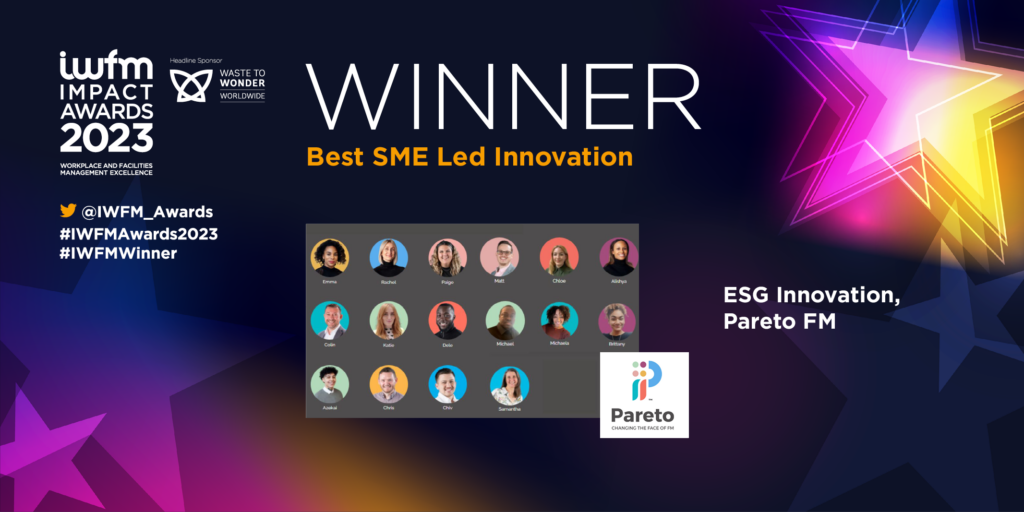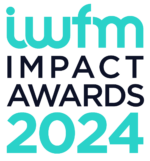Winner: ESG Innovation, Pareto FM

In 2020, Pareto FM realised that, while they had launched notable social initiatives, there was more to do to improve its environmental credentials. It was clear, too, that this would be an increasing area of focus in the future, with influence from both clients and employees.
Led by the board, Pareto began by identifying what they wanted to achieve over the next three years. This included measuring Scope 1 and 2 activities, and looking to implement both a carbon reduction plan and offset emissions where possible. Other priorities included trying to get client buy-in for ideas and looking at the potential to build progress into brand and marketing activity. In all, 10 focus areas were unveiled, and all these had to be reported against in monthly board meetings. The ultimate goal was to deliver carbon neutrality by the end of 2022.
Once the vision had been established, the next step was to monitor the current position. Pareto’s carbon footprint was relatively low, as a remote organisation without big premises, multiple vehicles or significant amounts of waste.
However, there were steps it could take for a further reduction, including closing all directly leased property locations, so the business only operated from one shared location. It also changed 20 percent of its vehicle fleet to electric vehicles, removed company printers, switched mobilisation meetings to an online format, and rolled out a cycle-to-work scheme, which is now used by 5 percent of staff. Employees have also received specific environmental training as part of the company’s ISO14001 accreditation.
Wider initiatives followed, including producing an own ethically manufactured honey, giving staff bug hotels to encourage biodiversity, partnering with a local school to create a wild garden and planting a tree for each team member in 2022. It funded initiatives to remove 52kg of plastic from oceans in 2022, and has pledged to remove a further 1kg a week as long as it is in operation.
Attempting to measure the impact of its supply chain, though, has proved more difficult. The business has more than 800 suppliers, and identifying what proportion of their activities can be attributed to Pareto is complicated. To help it derive a better understanding of how to tackle Scope 3 emissions, Pareto is working with BSI to help it move towards achieving PAS2060 accreditation. The hope is that this will ultimately lead to Pareto being able to issue carbon credits if it can achieve carbon negativity.
Results gleaned
Between 2020 and 2022, Pareto’s carbon emissions fell from 188 to 169 tonnes, while also seeing a 50 percent increase in turnover. The business then made use of carbon offsetting to achieve net-zero, through sponsoring a reforestation project in Papua New Guinea, at a cost of £1,950. Pareto also achieved both the EcoVadis Gold and SafeContractor PQQ Gold ratings, and believes it is the only mainstream carbon-neutral FM provider in the UK.
Best practice learning point
Having a specific focus is vital if it is to deliver tangible change. It’s also important to have a wide range of initiatives because there are competing demands, and this will help engage employees, clients and the public alike. A clear focus on the measurement and impact of initiatives is also essential, even if that can be hard to do at times.
Key quotes
“We knew that over this three-year period we could still be making improvements, even from a low start.”
“We needed to get buy-in from the most senior part of the business to make sure it would be adopted throughout the organisation.”
“We have taken many of the initiatives that we can, but now we have to focus on the bigger item which is Scope 3.”
